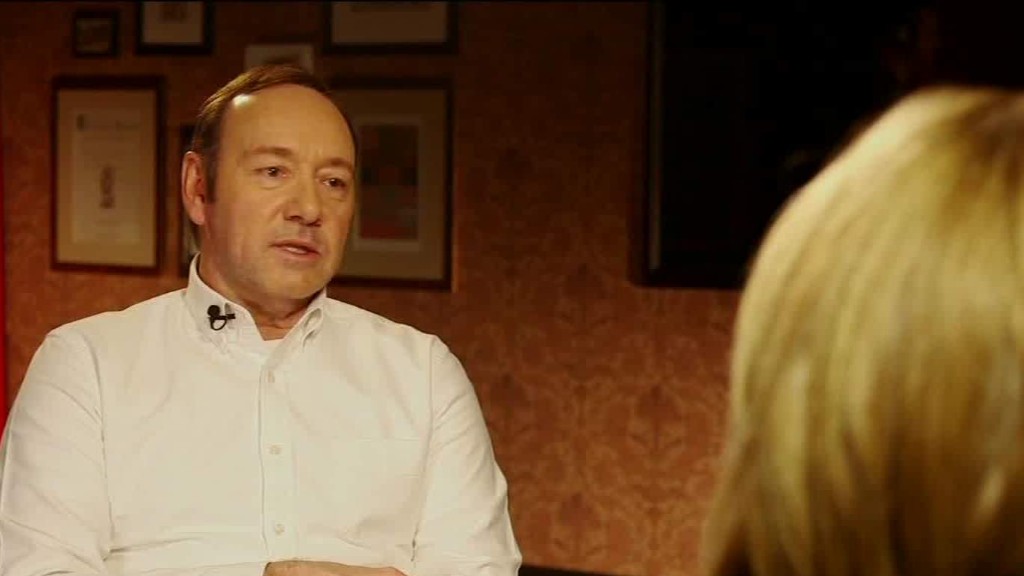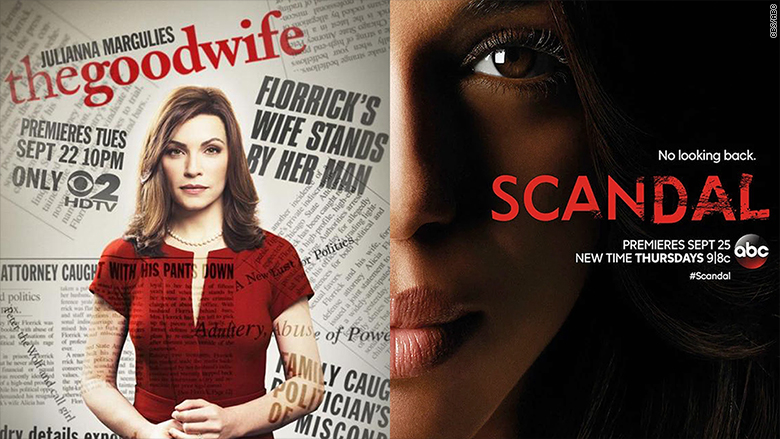
TV series that deal in politics tend to be wild and exaggerated. Sex scandals abound. Elections end in Electoral College ties. Vice presidents become president, mid-term, with surprising regularity. Some even commit murder.
The current political cycle, however, has given Hollywood writers a run for their money. And while "The Good Wife" -- traditionally more rooted in headlines than most -- is about to air its final episode, even shows like "Scandal," "Veep" and "House of Cards" are looking a little less crazy compared to the real deal.
"Scandal" has thrived by becoming an especially florid soap opera, complete with shadow governments and massive conspiracies. Yet the ABC series actually stumbled into a plot that paralleled reality, with two Republican presidential candidates colluding against an irreverent, trash-talking billionaire.
If the nod to Donald Trump was obviously intentional, the way his rivals teamed up against him couldn't have been known when the episodes were being written. That culminated in the season's penultimate episode on May 5 (and spoiler alert if you haven't watched), which involved using a leaked tape recording to discredit the candidate.

The final season of "The Good Wife," which concludes on Sunday, featured its own primary run by the governor of Illinois, played by Chris Noth. The show even name-checked Hillary Clinton as the Democratic frontrunner.
The campaign again forced his wife Alicia (Julianna Margulies) to play the dutiful spouse. That said, the focus this season has been more on the personal than the political. The story has built toward whether Alicia can find happiness in a new relationship -- and, secondarily, if her husband might be going back to jail.
"Veep," meanwhile, continues to explore the hangover from a presidential election left dangling, as incumbent Selina Meyer (Julia Louis-Dreyfus) scrapes to find missing votes. That follows "House of Cards," where President Underwood (Kevin Spacey) was actually pressured by his politically ambitious wife (Robin Wright) to anoint her his vice presidential running mate -- a strategy that played out over an open convention.
As recently as last year, insiders understandably laughed off the veracity of Washington-set shows. In a Wall Street Journal op-ed, former State Department staffer Warren Bass called "Scandal" "bonkers," and noted that "even when Hollywood can whip cable confections out of dreary D.C., it still can't manage to get the politics right." He cited one major exception: "The West Wing," Aaron Sorkin's Emmy-winning NBC drama.
This year, however, many of the shows, even the bonkers ones, appear a little less far-fetched. Whether that's because TV has gotten smarter, or politics haven't, is probably in the eye of the beholder.


